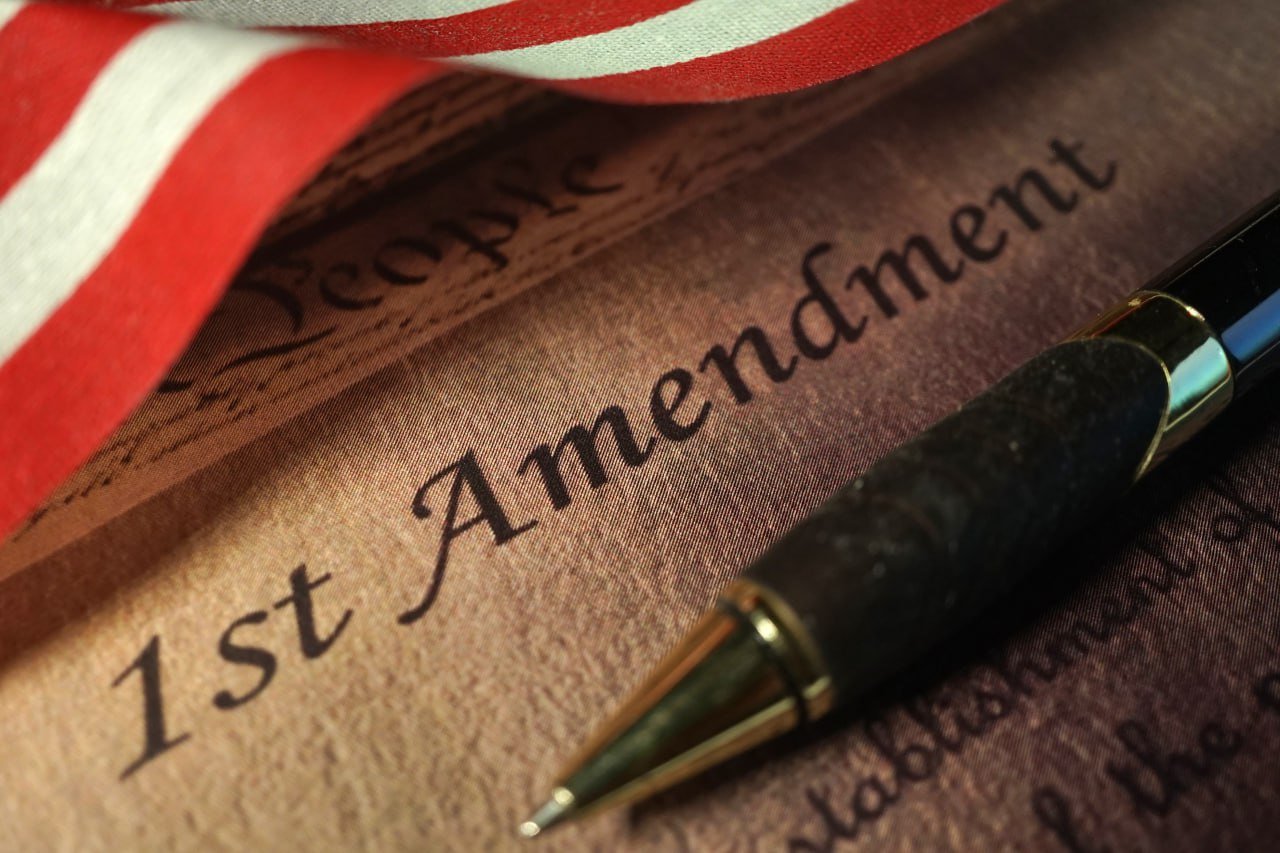The First Amendment: What Constitutes Free Speech?
“Congress shall make no law respecting an establishment of religion, or prohibiting the free exercise thereof; or abridging the freedom of speech, or of the press; or the right of the people peaceably to assemble, and to petition the government for a redress of grievances.”- The First Amendment
On July 12, 2021, the ACLU-NorCal and the Law Offices of Mark E. Merin and Brian S. Crone filed an anti-SLAPP motion against the City of Sacramento in opposition to the City’s Petition for Workplace Restraining Order. The anti-SLAPP motion was filed against the City of Sacramento by Skyler Henry, a city staffer hired by Councilwoman Katie Valenzuela.
City leaders attempted to get a restraining order against Skyler Henry for comments he made on his political podcast, Voices: River City, stating that “Senator Sinema should be terrified for the rest of her life because of the disrespectful way in which Sinema employed a ‘thumbs down’ gesture to vote against a proposed $15 minimum wage.”
Mr. Henry’s frustration also led him to state: “You should never be able to leave your house if that is how you’re going to govern.” He then continued: “To me, the same thing sort of applies with the mayor and the city manager of [Sacramento]. It’s like no, no, no, you don’t get to do that. You do not get to make the decisions that you have made over and over and over again to the detriment of everybody who lives here and then go home to your little [f------] little McMansion in Natomas and like have a good night’s rest. I’m sorry, you don’t get to do that. You do not have a right to that. Absolutely not.”
The comments Mr. Henry made are clearly protected under the First Amendment. “A long line of cases confirms our country’s ‘profound national commitment to the principle that debate on public issues should be uninhibited, robust, and wide open, and that it may well include vehement, caustic, and sometimes unpleasantly sharp attacks on government and public officials.’” New York Times Co. v. Sullivan (1964) 376 U.S. 254, 270.
Establishing a Credible Threat
“The City must establish by clear and convincing evidence that Mr. Henry made a credible threat of violence against City Manager Chan that could reasonably be construed to occur (or to have occurred) in the workplace and that it is reasonably likely unlawful violence may occur in the future in the absence of the requested restraining order. A ‘credible threat of violence’ is defined as ‘a knowing and willful statement or course of conduct that would place a reasonable person in fear for his or her safety, or the safety of his or her immediate family, and that serves no legitimate purpose. A true threat occurs when a reasonable person would foresee that the threat would be interpreted as a serious expression of intention to inflict bodily harm.’”
In a televised interview, Attorney Merin said, “This refers to the litigation the city filed against Skylar. It is an attempt to restrain him from doing his job, from coming to the office, from coming within a hundred yards of Chan and his family. That litigation was not to protect them from any imminent threat of violence, but rather to chill his speech, and more importantly Katie’s speech because he’s her chosen arm. That means that we can react against them and file an anti-SLAPP action which dismisses their action. Once it is dismissed as baseless, the next thing is to obtain damages for what they caused Skyer and Katie and others to go through.”
City officials, elected to public office, cannot be so super sensitive or thin-skinned to criticism. It comes with the territory. The main function of free speech under our government is to “invite dispute, and it may best serve its highest purpose when it induces a condition of unrest, creates dissatisfaction with conditions as they are, or even stirs people to anger.” Mr. Henry’s podcast comment did not come close to the line of calling for lawless action.”
“The City fails to recognize that criticism of public officials in this country is not a ‘credible threat’ but, rather, a constitutionally protected right!”
Skylar Henry’s comment, “We expected there would be some within the City that objected to my appointment because I have exercised my right to criticize and oppose many of the leaders within our government, including the mayor, members of city council, as well as some City staff members. While I can understand why some may have objected to what I’ve said in the past, seeking a restraining order against me so I cannot go to City Hall and perform the job I was hired to perform is just plain wrong.
Finding that Mr. Henry’s writings did not constitute a threat to the City, the court dismissed the City’s request for a restraining order against Mr. Henry related to his public comments. The City never offered any real evidence that Henry was a credible threat to violence in the workplace. Furthermore, none of his statements even occurred in the workplace. The comments ascribed to Mr. Henry occurred during legitimate political discourse on topics of significant public interest including police misconduct, government spending, and civil unrest.
The restraining order request had more to do with the weaponization of the City’s resources to persecute speech it does not favor. If the City is allowed to file frivolous restraining orders and intimidate people with whose opinions the City does not agree, the First Amendment has no meaning.
The Skyler Henry case exemplifies an affront to democratic principles guaranteed in the Constitution. It reveals that city officials and the police attempted to trample on free speech rights, because they cannot handle the criticism that our Constitution protects.
See also:

